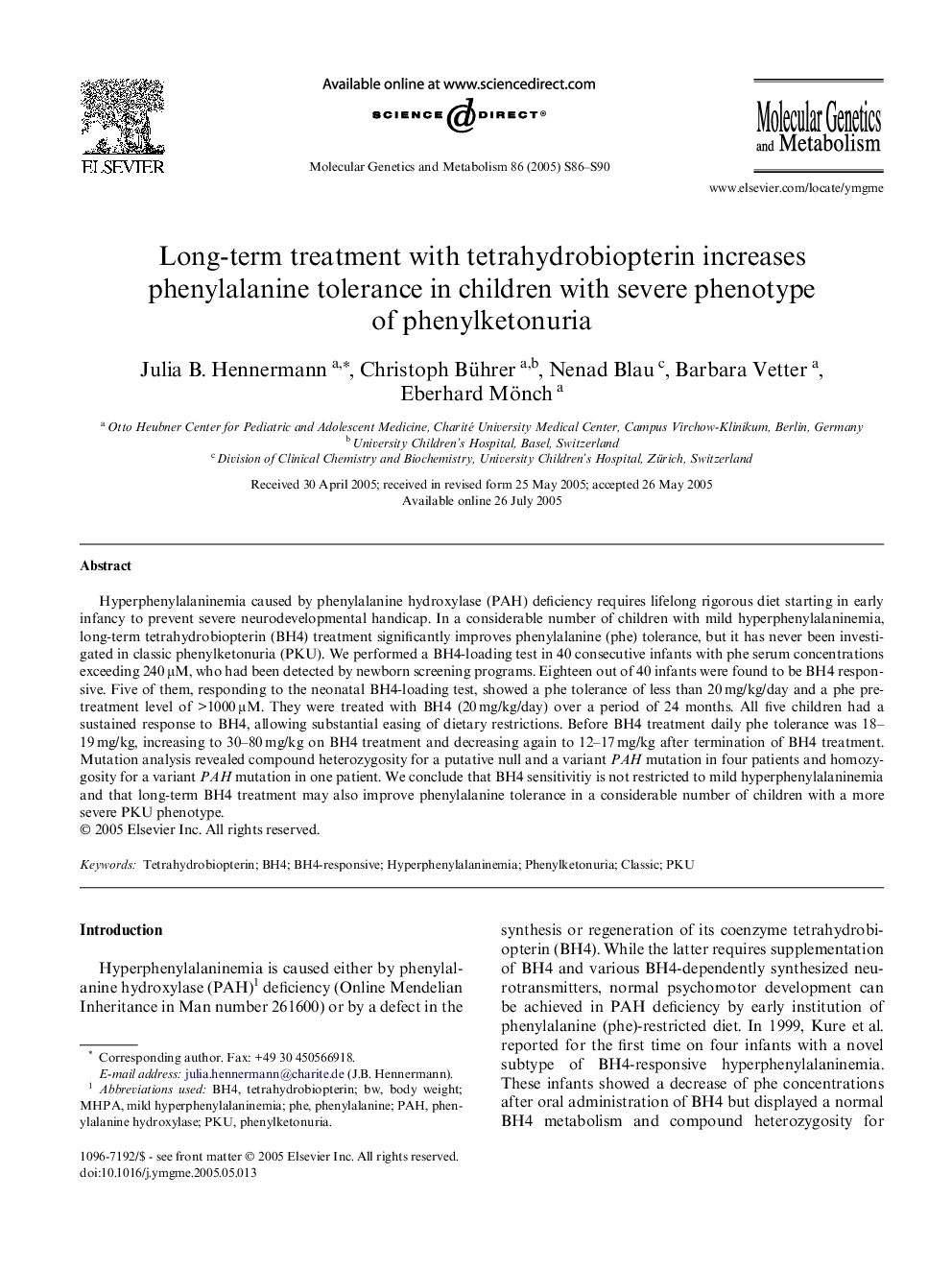| Article ID | Journal | Published Year | Pages | File Type |
|---|---|---|---|---|
| 10834044 | Molecular Genetics and Metabolism | 2005 | 5 Pages |
Abstract
Hyperphenylalaninemia caused by phenylalanine hydroxylase (PAH) deficiency requires lifelong rigorous diet starting in early infancy to prevent severe neurodevelopmental handicap. In a considerable number of children with mild hyperphenylalaninemia, long-term tetrahydrobiopterin (BH4) treatment significantly improves phenylalanine (phe) tolerance, but it has never been investigated in classic phenylketonuria (PKU). We performed a BH4-loading test in 40 consecutive infants with phe serum concentrations exceeding 240 μM, who had been detected by newborn screening programs. Eighteen out of 40 infants were found to be BH4 responsive. Five of them, responding to the neonatal BH4-loading test, showed a phe tolerance of less than 20 mg/kg/day and a phe pretreatment level of >1000 μM. They were treated with BH4 (20 mg/kg/day) over a period of 24 months. All five children had a sustained response to BH4, allowing substantial easing of dietary restrictions. Before BH4 treatment daily phe tolerance was 18-19 mg/kg, increasing to 30-80 mg/kg on BH4 treatment and decreasing again to 12-17 mg/kg after termination of BH4 treatment. Mutation analysis revealed compound heterozygosity for a putative null and a variant PAH mutation in four patients and homozygosity for a variant PAH mutation in one patient. We conclude that BH4 sensitivitiy is not restricted to mild hyperphenylalaninemia and that long-term BH4 treatment may also improve phenylalanine tolerance in a considerable number of children with a more severe PKU phenotype.
Related Topics
Life Sciences
Biochemistry, Genetics and Molecular Biology
Biochemistry
Authors
Julia B. Hennermann, Christoph Bührer, Nenad Blau, Barbara Vetter, Eberhard Mönch,
